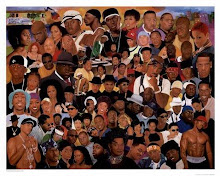Towards an Economic Vision of Empowerment and Collective Action
Chief Research and Policy Officer, Young Movement
The following remarks are from Young Movement Research and Policy Director Michael Partis, made at the organization’s “End of Welfare” Panel June 2011. The statement reflects Young Movement’s guiding premise: that young people must empower themselves and those around them by understanding the world past and present, in order to thoughtfully craft a vision for the world we need moving forward. Comments and thoughts can be sent to michael@youngmovement.org.The intention of our panel tonight is two-fold. First, we are striving to provide a platform for innovative thinking and fresh ideas. Second, we are attempting to create a space where sharing and exchange occurs—a space where strategic approaches and best-practices come together in the spirit of communal, collective success. The goal of tonight’s panel, and a fundamental component of Young Movement’s organizational vision, is building a new framework for how young people in this country view our economic and financial landscape. Indeed, what we are striving for is a paradigm shift; a shift away from the determinism of maximum utility, from the limits of profit margins, or the narrow generalization of terms such as “too big to fail,” “corporate greed,” or “disaster capitalism.” Tonight’s discussion will focus on exploring alternatives to traditional employment paths, and creating a movement towards entrepreneurship. Our goal is to begin a long-term commitment to developing: new business models, new approaches to financial planning, and new economic thinking. Cumulatively, we believe this approach will allow young people to utilize their ingenuity, creativity, and skill-set to create a sustainable socio-economic future not only for themselves, but for the country at large. This is a future where economics and finance are tools which build the capacity and material well-being of not only individuals, but also of communities, neighborhoods, and families.
Hence, when we talk about “welfare” tonight, we are not specifically referring to those government entitlement programs which are typically intended for those who face financial hardship: programs such as Medicare, Medicaid, Social Security, TANF (Temporary Assistance to Needy Families), or AFDC (Aid to Families with Dependent Children). Nor are we in agreement with the view of welfare which: stigmatizes the poor as pathological; that advocates for “deficit-model” approach to understanding poverty; or that characterizes low-income populations as an “underclass” whose hardship is based on cultural and individualistic failures. Rather than these historic, yet still presently important, debates, the purpose of tonight’s event is to question a) the efficacy and pragmatism of relying on government services given our current economic context; and b) the validity of a “trickle-down” economic model which makes a large number of people financially dependent on a small number of people. In plain English—does it make sense to depend on our government, or large corporations, to maintain our personal economic and financial well-being?
From 1980 to 2005, the top one percent of income earners received eighty percent of the country’s increased income. Today this rich one percent accounts for 24 percent of our overall income (Noah 2010). And if we consider wealth instead of income, the same top one percent controls 40 percent of that as well (Stiglitz 2011). University of California-Berkeley economist Emmanuel Saez is noted for his extensive research on U.S. income inequality. He writes that “we need to decide as a society whether this increase in income inequality is efficient and acceptable and, if not, what mix of institutional reforms should be developed to counter it” (Saez 2010).
The solution to this socio-economic inequality is often coupled into one response with two points: more education, and better job-training. However, this year marks the first time ever that college debt has surpassed credit card debt. College is often the first place most people receive their first legitimate job-training: through internships. Increasingly though, these internships have become problematic. According to the April 25 edition of The Economist, American organizations save $2 billion a year by not paying interns minimum wage, and researcher Ross Perlin explains that this free supplemental workforce effectively subsidizes labor for Fortune 500 companies. This point becomes even more critical as today’s New York Times (June 2, 2011) cover story on the country’s unemployment rate cite economic forecasters who predict only modest job growth until November 2012, and anticipate an increase in unemployment in tomorrow’s monthly employment report.
In a recent Vanity Fair essay, Nobel Prize economist Joseph Stiglitz argues “that a modern economy requires ‘collective action’,” and that the United States must return to working towards the common welfare of its people (2011). Indeed this is a sentiment Young Movement shares, and it is in that spirit that we hope to have an exciting, challenging, and progressive panel discussion here tonight.
